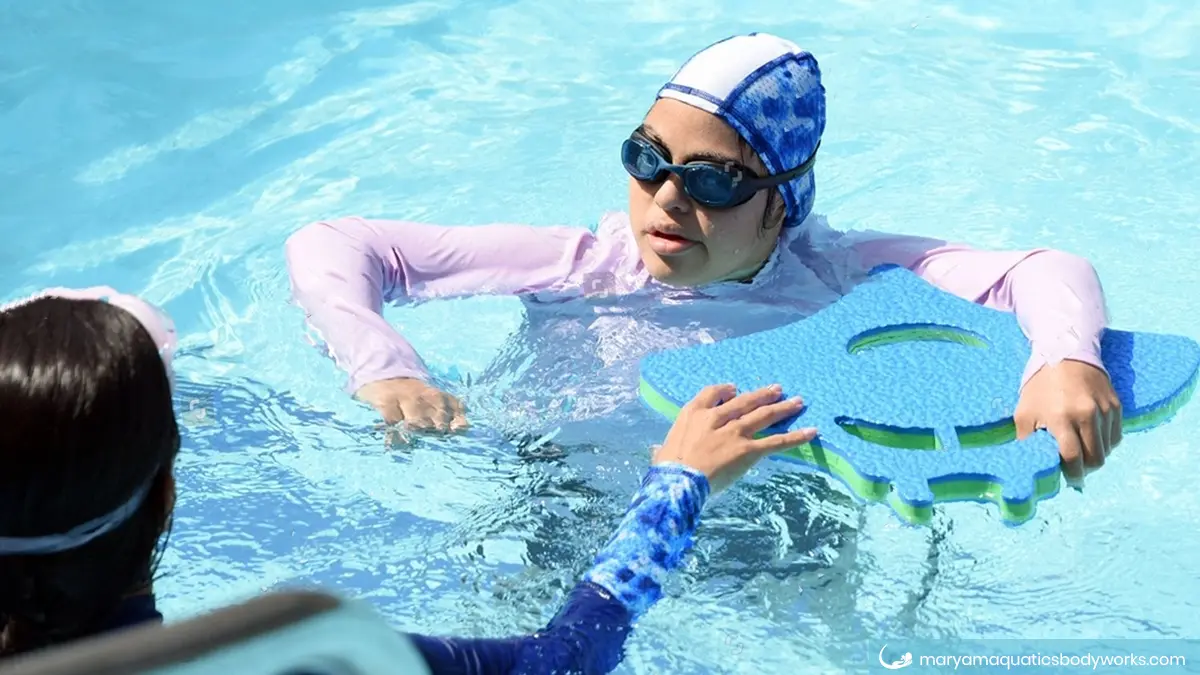The Benefits of Swimming for People With Disabilities: Enhancing Health and Wellnes

Swimming is widely recognized as one of the most beneficial forms of physical activity for individuals of all ages and abilities. For people with disabilities, swimming offers a unique combination of therapeutic and recreational benefits that can significantly enhance both physical health and overall wellness. From improving cardiovascular fitness to fostering social connections, swimming for people with disabilities is a powerful tool for living a fuller, healthier life.
Swimming For People With Disabilities
When it comes to emotional, mental, and physical well-being, various types of activities are essential. Fortunately, there are a multitude of activities, including swimming that people with disabilities can participate in.
Keep reading to learn more about the top six benefits that people with disabilities can receive from swimming.
1. Enhances Joint and Muscle Health
One of the primary benefits of swimming for people with disabilities is the water’s natural buoyancy, which reduces the impact on joints and muscles. For individuals with mobility impairments, arthritis, or muscular dystrophy, traditional land-based exercises are more strenuous. In fact, land-based exercise can often cause discomfort or exacerbate existing conditions. In contrast, water supports the body and allows for a wider range of motion. As such, water makes it easier to strengthen muscles, improve flexibility, and maintain joint function without strain.
2. Cardiovascular and Respiratory Improvement
Swimming is an excellent cardiovascular workout. Regular swimming sessions can help improve heart health, enhance lung capacity, and boost overall endurance. Not everyone can use or have accesses to high-intensity cardio activity. So, for people with disabilities, swimming offers a safe and effective alternative. The resistance of water provides a gentle challenge that promotes cardiovascular fitness. It can also aid in managing conditions such as high blood pressure and obesity.
3. Enhanced Mental Health and Emotional Well-Being
The rhythmic nature of swimming, combined with the calming properties of water, can help reduce stress, anxiety, and depression. For individuals with disabilities, who may experience higher rates of social isolation or mental health challenges, swimming can serve as a therapeutic outlet. Water offers is a sensory stimulator and the temperature can also have a soothing effect. This is particularly true for individuals with sensory processing disorders or autism spectrum conditions.
4. Increased Social Interaction and Confidence
Swimming for people with disabilities often takes place in community pools, adaptive swim programs, or specialized aquatic therapy sessions. These settings provide opportunities for social interaction, teamwork, and the building of friendships. Participating in group activities, swim classes, or even competitions can foster a sense of accomplishment, boost self-esteem, and combat feelings of isolation. The mastery of swimming skills, no matter how basic, can empower individuals and enhance their confidence both in and out of the pool.
5. Therapeutic Benefits and Rehabilitation Support
Aquatic therapy is a common rehabilitative approach for people recovering from injury or living with chronic conditions. The water’s resistance and support make it an ideal environment for therapeutic exercises that improve balance, coordination, and muscle strength. For individuals with neurological disorders, spinal cord injuries, or post-surgical recovery needs, water-based therapy can expedite rehabilitation and maintain functional independence.
6. Lifelong Skill and Recreational Enjoyment
Finally, swimming for people with disabilities provides the lifelong benefit of a skill that can be enjoyed recreationally. For example, swimming laps, water aerobics, or simply playing in the pool. In either case, swimming encourages an active lifestyle that can be sustained across a person’s lifespan. In addition, pools are easily accessible and some have adaptive equipment. For example, flotation devices and pool lifts. This equipment ensures that swimming can be inclusive and accommodating for a wide range of abilities.
Conclusion
The benefits of swimming for people with disabilities extend far beyond the pool. As a holistic activity, swimming enhances physical fitness, supports mental and emotional well-being. It also fosters social connections, and offers therapeutic advantages that promote long-term health and quality of life. Plus, it empowers individuals with disabilities to engage in meaningful, enjoyable, and health-enhancing movement that nurtures both body and spirit.



